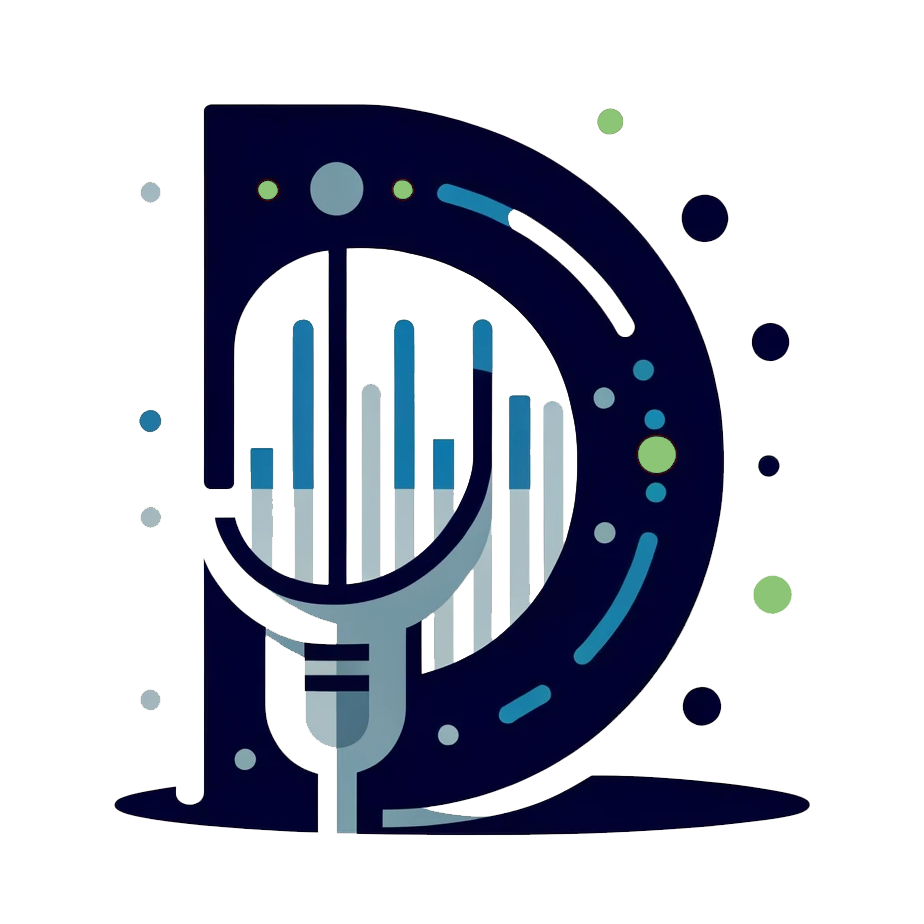Episode 3
Datinuum Podletter 3: Self-Fed is the New Self-Service
Welcome to episode 3 of the Datinuum Podletter.
In this week's Podletter, Eric covers four topics.
Data Unfiltered - Self-Service is Dead
- Discussion on the initial appeal of self-service analytics.
- The unrealistic expectations and challenges faced in actual implementation.
- Key requirements for successful self-service analytics and why they often fail.
- Definition and advantages of self-fed analytics over self-service.
- How self-fed analytics can streamline data analysis and reporting.
- Examples of how self-fed analytics can be implemented in organizations.
Data in the World
In this segment, Eric highlights recent developments in data and technology, including:
- Overview of Apple's entry into the LLM space with their open-sourced model, Ferret.
- Analysis of the changing landscape of tech hubs in the U.S.
Data Career Tips: Give Yourself Permission
- Advice on taking initiative in your data career.
- Strategies for self-advancement and overcoming common career hurdles.
Data Histories - Euclid and His Shapes
- Exploring Euclid's contributions to mathematics and geometry.
- The lasting impact of Euclid's work on modern technology and applications.
The Datinuum number for the week is 167.
Thank you for subscribing and listening to this week's Podletter. If you enjoyed the Podletter, the best way to help is by sharing it with colleagues and friends.
If you prefer to read the Datinuum Newsletter, please subscribe on Beehiiv.
Feedback is a gift. Please reach out to datinuum@gmail.com with any feedback or questions.
Transcript
Eric Gonzalez: Welcome to this week's Datinuum Podletter I'm your host and author, Eric Gonzalez.
th,:Eric Gonzalez: Data in the world. Apple enters the chat. Apple quietly entered the discussion in October with an open source model called Ferret. Unsurprisingly, Apple joined late. Though it is surprising that the project is open sourced. I expect Apple to work on more efficient architectures that are SLM driven and can be run locally so that their entire hardware ecosystem from watches to MacBooks, can run them
Eric Gonzalez: Tech hubs are shifting. San Francisco, New York and Boston used to be considered the primary regions where you could find tech talent. While they continue to be tech hubs. Following the pandemic and the availability of remote work, new tech hubs are popping up all over the US As people from the original tech hubs have relocated, cities like Denver, Austin and Miami have seen considerable gains in tech talent, witnessing the shift towards a primary driver for me, moving back home to Miami during the pandemic.
Eric Gonzalez: Data, career tips. Give yourself permission. A mistake I made early in my career was waiting for others to give me the agency to do something or the permission to move to the next level. The rationale and assumptions behind my choice, or lack thereof, was that other people, one had been there before. Two knew what it takes to get to the next step. Three would let me know when it was my time and when I was ready. The first two assumptions were spot on. People learn to level up from previous experiences reading and learning or working with mentors and colleagues. The last assumption was my mistake. It's not that others don't want you to succeed, but instead they aren't going to push you to the next step or promote you to that new role. If you can't see yourself in it, your manager won't elevate you into a management role. If she has to manage all your tasks to completion, the executive team won't see you as a candidate for the CTO role. If you've never provided any insight on data strategies for the company, partners won't want you to manage accounts. If you consistently ask someone else to complete your major S.O. WS. So how do you break the cycle into that new role that you want? You don't need to be arrogant, ungrateful, or impatient. Your goal is the opposite. You must start taking on part of the role you're already aiming for. Slowly. If your manager hasn't seen you manage anything before, one start effectively managing all your deliverables to shift from reactive to proactive in your way of thinking. Three Identify ways to delegate and take on more strategic roles on projects. Four Learn how to manage up arguably the most underrated skill at any level. If the executive team hasn't seen you in an executive capacity. One Identify ways to improve existing yearly initiatives and roadmap to hold conversations with team members, to understand pain points and strategize how to resolve those pain points with data. Three Generate new ideas to help increase revenue or decrease costs with data driven strategies. If partners don't want you to manage accounts, one shadow an offer to complete others contracts to familiarize yourself with the process and you can then execute it alone to source leads and develop strong relationships. So you bring in sales and clients ask you to lead the account. None of these suggestions will thrust you immediately into the situation you want because that takes time. Each of these, however, is an iterative step in moving you into the next position. Others will stop seeing you as a person you've always been, and instead recognize your potential for what you can become. Stop waiting for someone to anoint you as, quote, ready and give yourself permission.
Eric Gonzalez: Data histories. Euclid and his shapes. Euclid is most well known for the mathematical formula that bears his name and is widely used in many applications today. The Euclidean distance, although the Euclidean distance, is his most well-known contribution to the field. Euclid's impact on math went far beyond a straightforward formula. Euclid was born around 300 B.C. in Greece, and some would argue that he is the father of geometry due to his book Elements, which provided five postulates covering lines, polygons, theorems, right angles, circles and radius and more on geometry as we know it today. The book also has the earliest written mention of the Pythagorean theorem, the precursor to the Euclidean distance, and his theorem behind the formula. His notable formula, the Euclidean distance measures the shortest distance between two points. However, the algorithm has limitations, given that it measures a short a straight line and only works well with low dimensional data due to the limitations. The formula evolved and served as the basis for the following. The Manhattan Distance for map based applications, cosine similarity and recommender systems. KNN or K-nearest neighbors and other ML algorithms. His work serves as a foundation for the geometry and math we use in school and it's also a foundational component of products we use daily, such as Netflix's recommender system or Google Maps.
Eric Gonzalez: Datinuum number of the week, 167 Amazon projects to make 160 to 167 billion this holiday quarter with the vast majority of consumers 74% online shopping on Amazon, myself included.
Eric Gonzalez: Thank you for subscribing and listening to this week's pod letter. If you enjoyed the pod letter, the best way to help is by sharing it with colleagues and friends. If you prefer to read the newsletter, the De Tenham newsletter will be released weekly on Beehive. You can find a link to subscribe in the shownotes. Feedback as a gift. Please reach out to Datinuum@ gmail.com with any feedback or questions.


